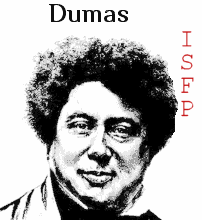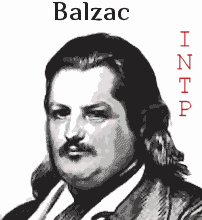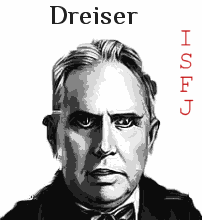Socionics
Socionics is a concept of a person's personality types and the relationships between them. It was created on the basis of Jung's typology and the theory of information-energy metabolism of A. Kempinsky. Socionics believes that a person's personality type is determined by his way of perceiving information and exchanging it with the outside world.
Relaza is a convenient tool of practical socionics. Create a personal relationship map and determine psychological compatibility with others. Find your dual anywhere in the world and chat with him. Look at suitable professions and recommendations for self-improvement. Get your socionic passport.
Socionic types.
Fundamentals of Socionics
Unlike Jung's theory, in socionics it is believed that one of the mental functions of the dichotomy is always dominant and suppresses the second. Therefore, there are 16 types of personality in socionics, not 8 as in Jung. These 16 socionic TIMs were described by Aušra Agustinavicute in her information model of the psyche, explaining the differences between all personality types and their behavior (Model A). She also came up with all these characteristic pseudonyms for sociotypes:

Also, instead of the term "personality type" in socionics, the term "Type of Information Metabolism" (TIM) is used. This is something other than the upbringing of a person, his level of culture, his profession: it is a way of exchanging information and activities with the outside world. It is partly genetically determined, and otherwise laid during the formation of personality in the first years of life. It is believed that unlike the cultural level and the experience gained, TIM does not change over time.
Relationships in Socionics
In addition, socionics makes the assumption that between people of certain types of personality there are strictly defined types of relationships. Therefore, people's compatibility depends more on their psychotypes than on their desires. There are also 16 relationship options. They are determined by the combination of strengths and weaknesses of two individuals and they can be distinguished using the same "Model A".
So in a conflict relationship, your counterpart differs from you in all respects. If you are an introvert, intuitionist, ethicist and rational (INFP) – then your conflicter is extraverted, sensory, logician, and irrational (ESTJ). And your dual differs from the conflicter only in the principles of thinking - rationality. If the main principle coincides, then the differences in the rest of the signs of the dual only complement your weaknesses.
History of socionics
The first typology of people was described by psychiatrist Carl Jung in his article "Psychological Types", which was published in 1921, then the American psychologists Myers and Brigs expanded it and in the 40s the first version of the famous MBTI test for determining personality type appeared.
Finally, in the 70s of the last century, the Lithuanian sociologist Aušra Agustinaviciūtė laid the foundation of socionics.



Is socionics a science?
Socionics is one of the concepts of the typology of human personality. Like other similar models, it has the right to exist, since it is based on scientific principles (unlike the same astrology). But to full scientific recognition is not soon. The descriptions are vague, there are no clear criteria for determining socionic types. Different schools of socionics have very different views, especially at the typing stage. Scientificity in the humanitarian fields still involves the development of some basic standards.
Often socionics is reproached for a simplified interpretation of a person's personality, they say, all the diversity of people cannot be adjusted to 16 types. And that's true. Any model simplifies. That's the point. If we describe each person on earth individually, this is no longer a typology.
Each of us does not hesitate to use his own typology, according to which he builds relationships with people. When we meet, we can say that this person is funny, this dangerous, this right one.... which is also a simplification, but we apply it automatically. Socionic information model of the psyche and tries to identify common criteria for people's behavior.
There is also the concept of "brightness of the personality type" - how accurately you correspond to such a generalized type. With mild signs, the generalized description will differ from the real one. Therefore, "standard descriptions" are always quite schematic.
Despite all the shortcomings, socionics works! And it makes it possible to predict the relationships of people. And if you don't use any models of human personality, you can't predict the behavior of people, especially unfamiliar ones.
And while the adherents of different schools argue which of them is closer to the truth, it is possible and necessary to use the accumulated knowledge in practical life to predict relationships with a certain accuracy. This can be done on our website by building a map of the relationships of the people around you.
How much can you trust the predictions of the relationship?
Since all types of relations in socionics are isolated on the basis of empirical observations, this is a statistical probability. If there should be, for example, a conflict relationship between you, then this means that between people of your types most often there are conflict. And the more pronounced the sociotype (and this can be recognized by the test result), the higher the probability of such relationships. Although, of course, deviations are also possible, since social, educational and other personal factors also affect relationships.
It also affects how often certain types are found in society. For example, Marshals in life are directly surrounded by duals Lyrics due to their prevalence. Perhaps that's why the Marshals are quite selfish. Conversely, it is very difficult for a man Lyric to meet a woman Marshall, since this is the rarest type of personality.
You can determine your socionic type using the services of professionals or take the tests.
Share:




 To get
To get 
















